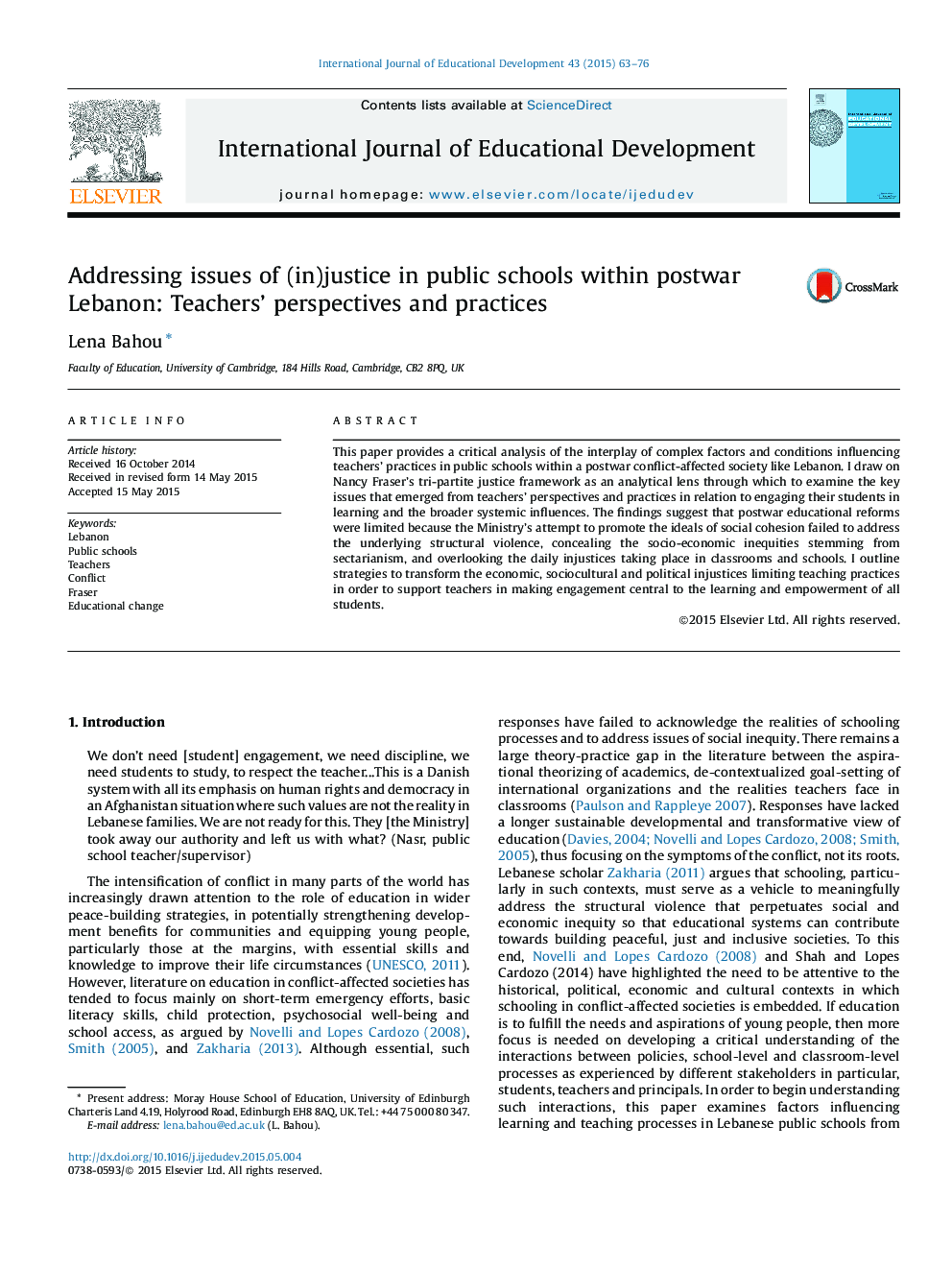| Article ID | Journal | Published Year | Pages | File Type |
|---|---|---|---|---|
| 356027 | International Journal of Educational Development | 2015 | 14 Pages |
•Impact of on-going conflict on teachers’ economic livelihoods and perceptions of their professional status.•Teachers’ practices to engage their students with learning were limited by their deficit beliefs about children’s poor backgrounds.•Teachers’ practices were also limited by the structural constraints in the educational system.•Lebanon’s social cohesion education agenda has concealed the socio-economic inequities stemming from sectarianism and conflict.
This paper provides a critical analysis of the interplay of complex factors and conditions influencing teachers’ practices in public schools within a postwar conflict-affected society like Lebanon. I draw on Nancy Fraser’s tri-partite justice framework as an analytical lens through which to examine the key issues that emerged from teachers’ perspectives and practices in relation to engaging their students in learning and the broader systemic influences. The findings suggest that postwar educational reforms were limited because the Ministry’s attempt to promote the ideals of social cohesion failed to address the underlying structural violence, concealing the socio-economic inequities stemming from sectarianism, and overlooking the daily injustices taking place in classrooms and schools. I outline strategies to transform the economic, sociocultural and political injustices limiting teaching practices in order to support teachers in making engagement central to the learning and empowerment of all students.
